Tender, fearless, and quietly heartbreaking, Tomboy by Céline Sciamma tells the story of a ten-year-old girl who spends one summer pretending to be a boy. Through her eyes, the film captures not just the innocence of childhood play, but the beginning of a lifelong negotiation with identity, freedom, and the gaze of others.
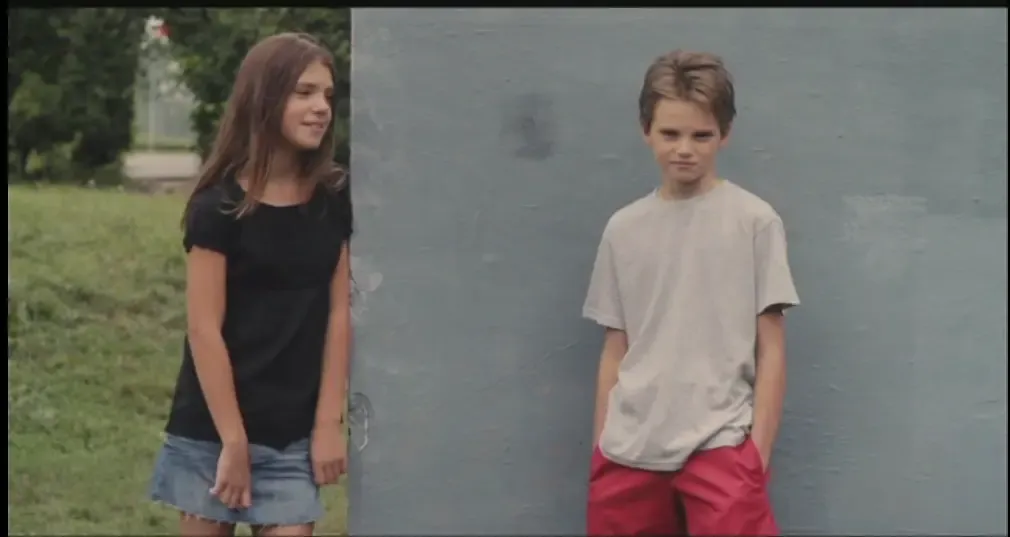
Laure (Zoé Héran) is a shy, observant 10-year-old who often gets mistaken for a boy—and doesn’t correct anyone. When her family moves to a new neighborhood during the summer holidays, Laure decides to reinvent herself. With her short hair, loose T-shirts, and quiet confidence, she introduces herself to the neighborhood kids as Mickaël.
Under this new name, she plays soccer, swims shirtless, and joins the boys’ circle seamlessly. Among them is Lisa (Jeanne Disson), a bright, warm girl who quickly becomes intrigued by “Mickaël.” Their friendship deepens into a gentle, tentative affection—a child’s first brush with love that doesn’t yet know the boundaries of gender.
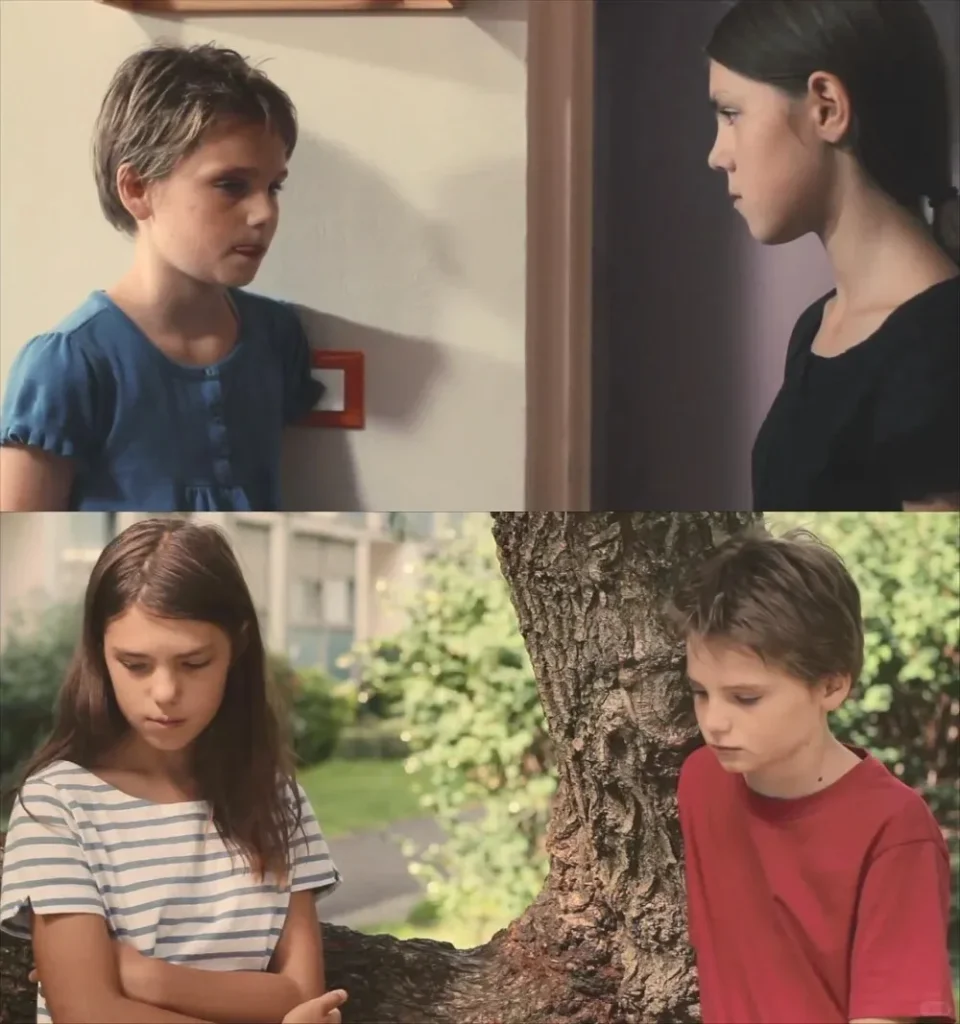
But the lie cannot last forever. As summer wanes, so does Laure’s illusion of control. Her mother eventually discovers the truth, forcing her to confront not only her neighbors but also Lisa, who feels confused and betrayed. The revelation unfolds not with violence but with a quiet ache—the kind of heartbreak only childhood can carry.
Tomboy ends not in punishment, but in honesty: Laure, now stripped of disguise, reintroduces herself to Lisa by her real name. Lisa’s soft smile in return becomes a small, wordless act of forgiveness—and perhaps the beginning of understanding.
Tomboy Cast
Charactor

Laure is a ten-year-old girl who presents herself as a boy named Mickaël after moving to a new neighborhood. Curious, gentle, and full of quiet courage, she navigates friendship, affection, and the boundaries of gender during one unforgettable summer.
Zoé Héran
Zoé Héran delivers a remarkably natural and introspective performance, capturing the confusion and determination of a child trying to understand herself. Her subtle facial expressions and stillness carry the emotional weight of the film, marking her as one of the most memorable young performers in modern French cinema.
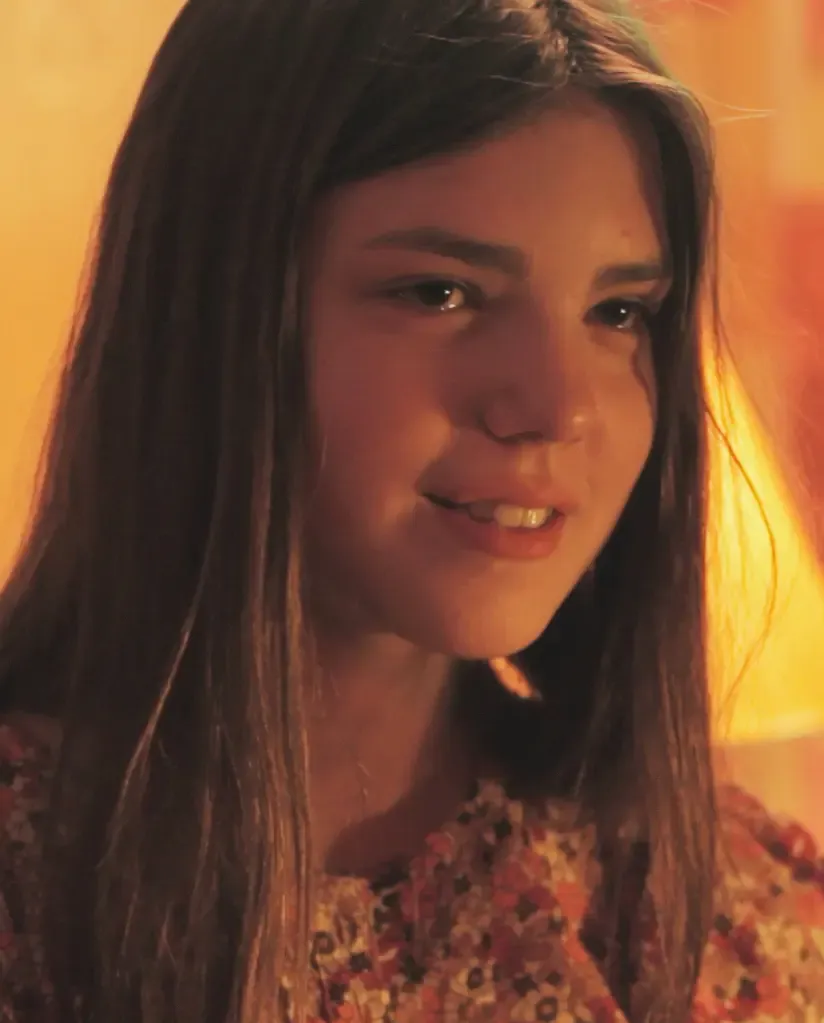
Lisa is Laure’s neighbor—bright, playful, and open-hearted. She becomes both Laure’s first love and mirror, embodying innocence and affection untouched by adult judgment.
Jeanne Disson
Jeanne Disson, known for her work in The Dancer (2016) and Catherine Breillat’s Abuse of Weakness (2013), brings tenderness and authenticity to Lisa. Her performance perfectly balances curiosity and empathy, helping the story remain grounded in the purity of childhood emotion.

Jeanne is Laure’s cheeky, affectionate little sister who accepts her sibling unconditionally. Her playful energy provides comic relief and warmth, making her one of the film’s emotional anchors.
Malonn Lévana
Malonn Lévana, who later appeared in Sciamma’s Girlhood (2014), shows extraordinary screen presence for her age. Her chemistry with Zoé Héran adds to the film’s family realism and emotional authenticity.

A loving but anxious mother who discovers her daughter’s secret and struggles between societal expectations and maternal protection.
Sophie Cattani
Sophie Cattani, a French actress known for A Prophet (2009) and Les Lyonnais (2011), gives the role emotional restraint and depth, portraying both disappointment and compassion with quiet dignity.

A gentle, understanding father who encourages Laure’s freedom but is unaware of her hidden struggle. His relaxed parenting reflects the film’s nuanced view of modern family life.
Mathieu Demy
Mathieu Demy, son of French cinema legends Jacques Demy and Agnès Varda, is an accomplished actor and filmmaker. His understated performance subtly mirrors the generational shift toward empathy and openness.
Director

Céline Sciamma
Céline Sciamma, born in 1978, is one of France’s most influential contemporary filmmakers known for her intimate portrayals of identity, adolescence, and female desire. After her debut Water Lilies (2007), Tomboy (2011) established her as a master of subtle emotional storytelling. Later works like Girlhood (2014) and Portrait of a Lady on Fire (2019) deepened her exploration of gender and the female gaze. Sciamma’s direction is minimalist yet emotionally rich—she trusts silence as much as dialogue, and her empathy toward outsiders defines her signature style.
BEST SCENES
📍 The lakeside sequence captures everything Tomboy stands for: innocence, fear, and fleeting joy. When Laure jumps into the water, her fragile disguise intact, she experiences complete freedom—until the surface tension of the world inevitably breaks. It’s one of Sciamma’s most poetic moments: the dream of selfhood suspended between breath and discovery.
Tomboy Review
Review
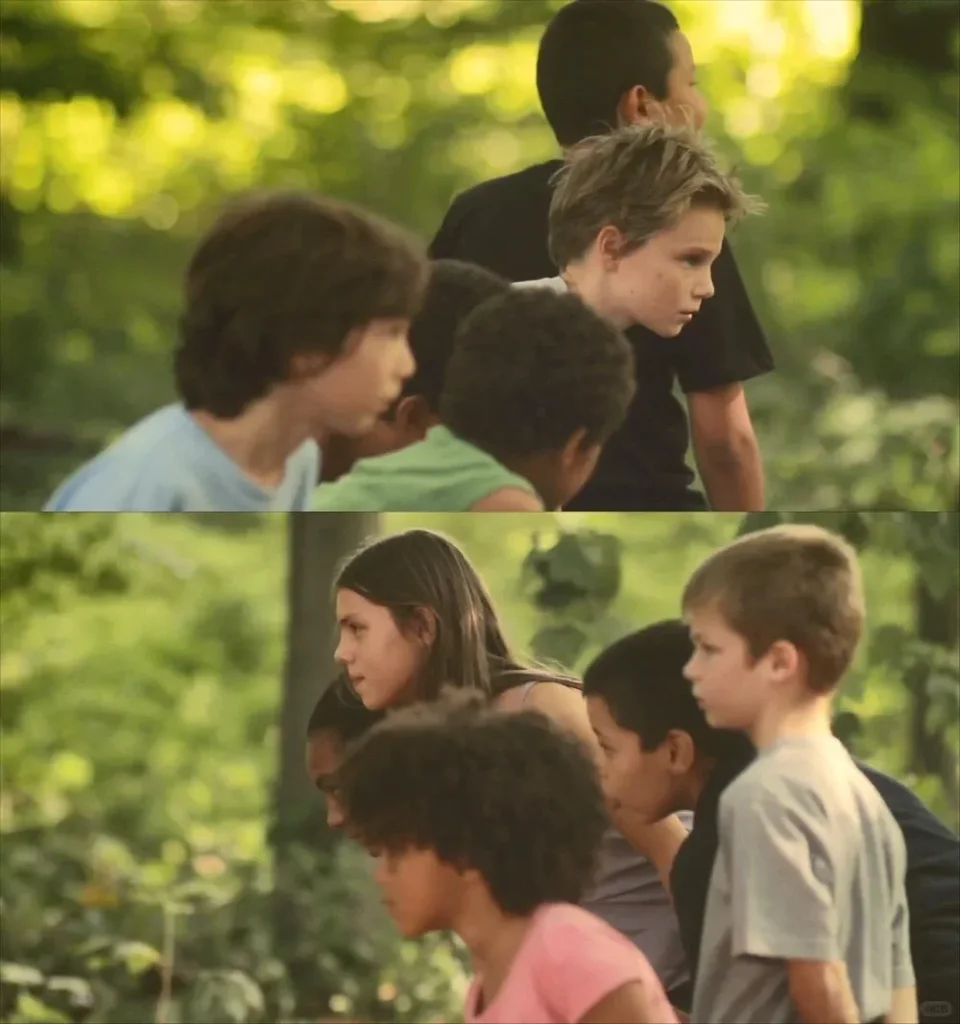

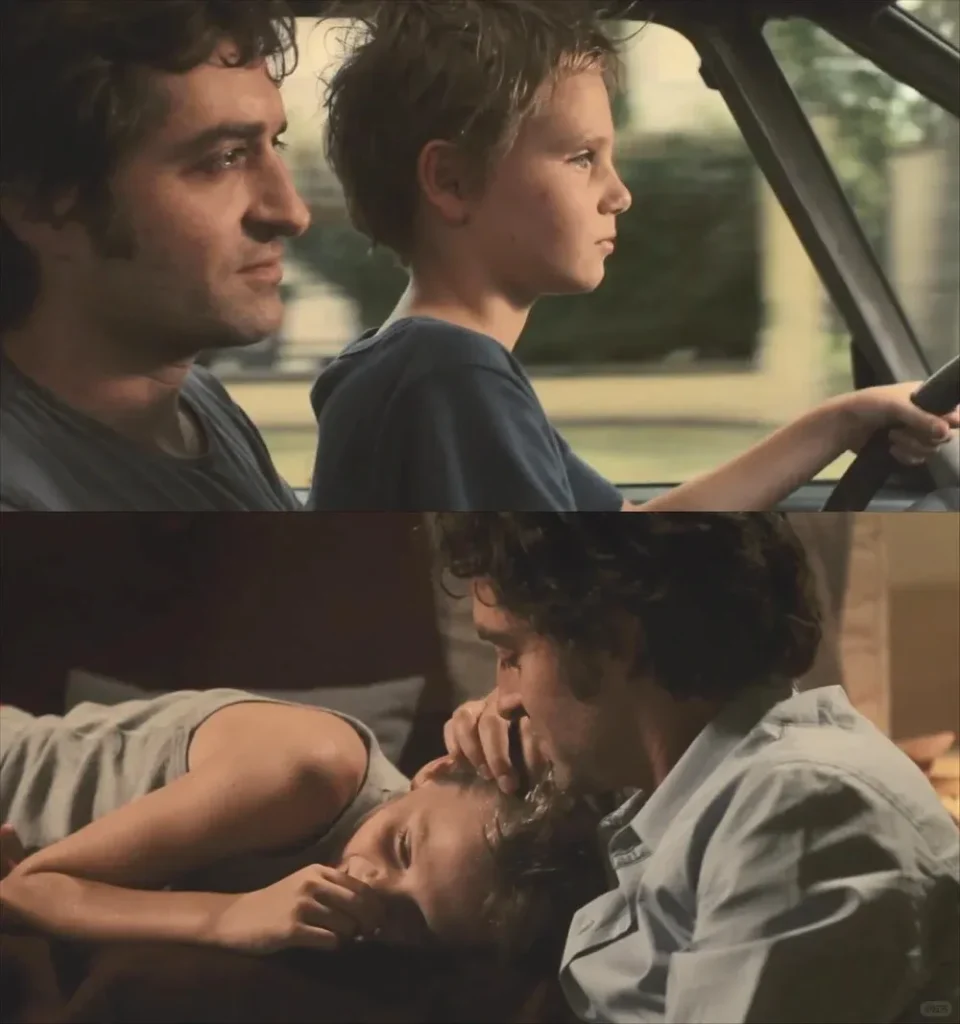
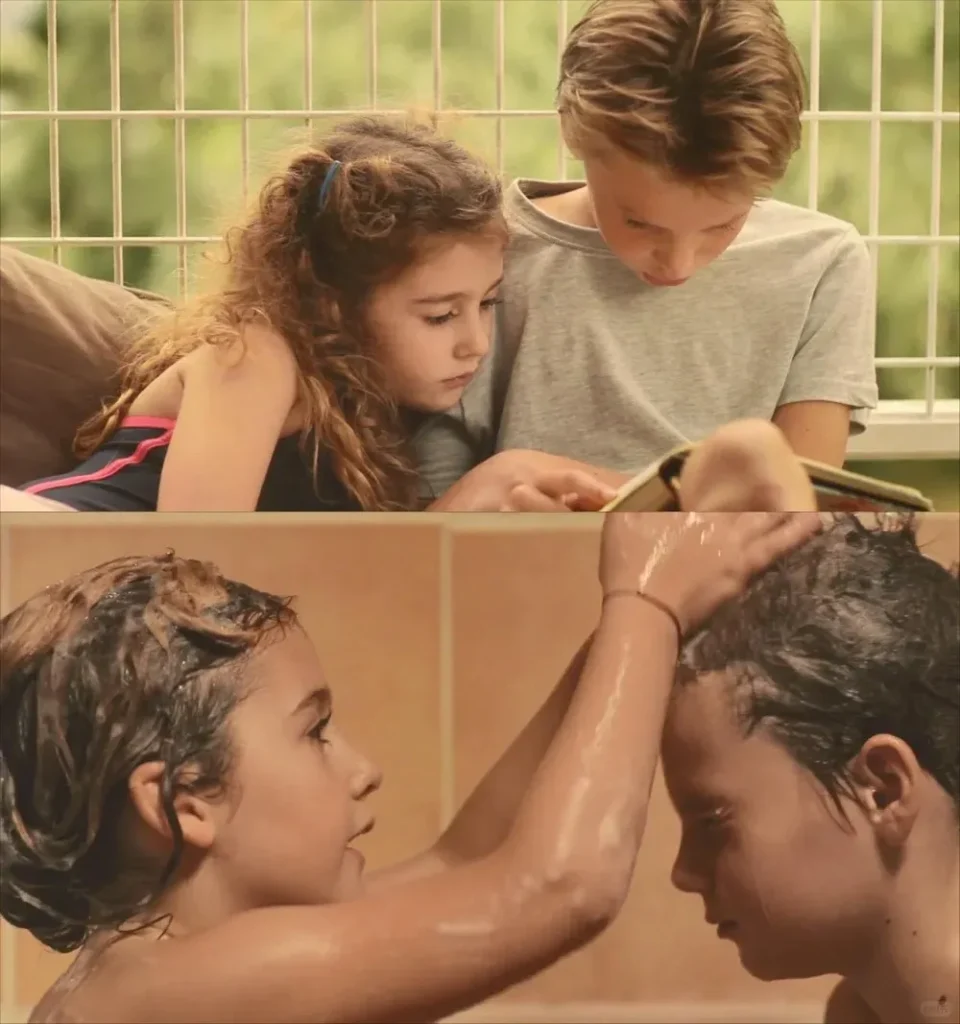
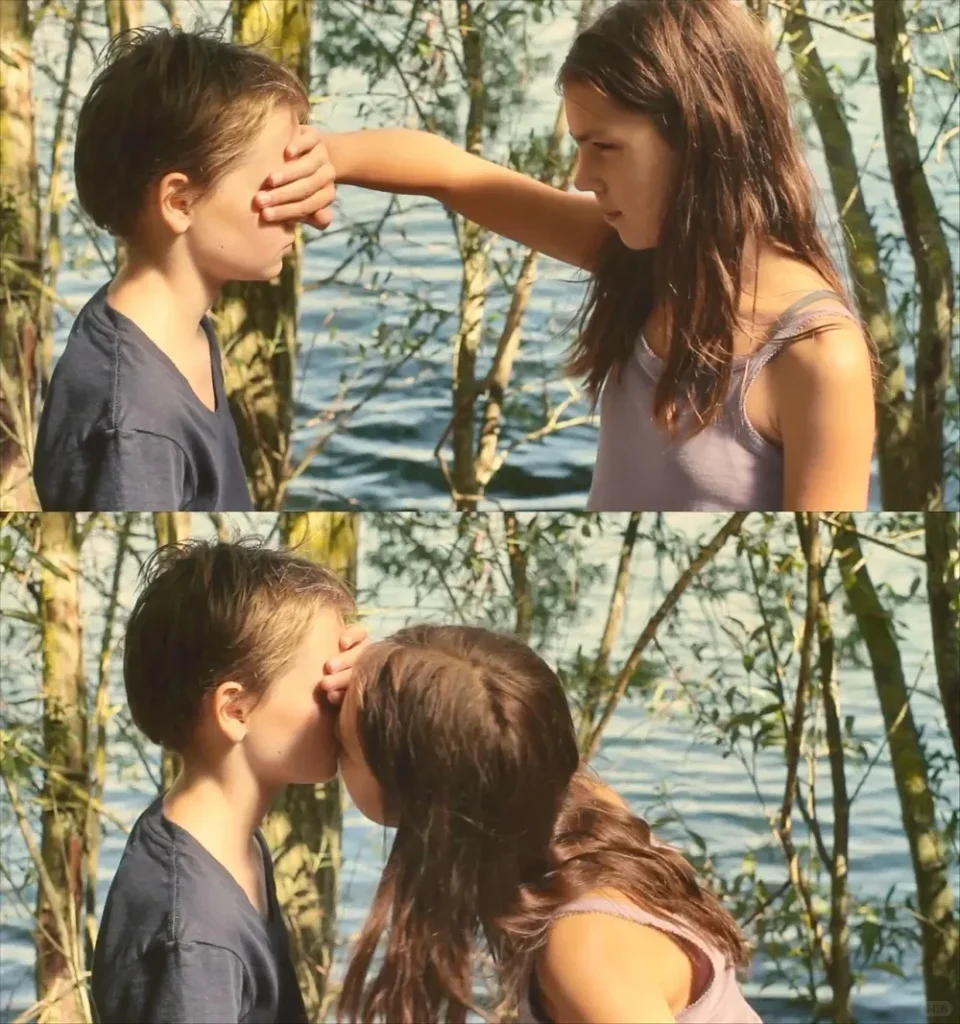
What makes Tomboy extraordinary is not its plot but its tenderness. Céline Sciamma approaches her young protagonist not with judgment but with empathy, allowing the audience to experience the confusion and courage of a child navigating identity without words to name it.
Watching Laure pretend to be Mickaël is both thrilling and painful. During the soccer match where she takes off her shirt to blend in, or the swimming scene where she uses a handmade prosthetic to hide her body, we hold our breath—not because we fear exposure, but because we don’t want her fragile dream to break. It’s a universal moment: the wish to belong, to be seen the way we feel inside.
Sciamma’s direction is full of detail. Every gesture—Laure’s nervous smile, Lisa’s lingering gaze, the small domestic scenes between siblings—builds a portrait of gender exploration that feels neither didactic nor sensational. There is no adult sermon about identity, only a child’s quiet defiance of binary rules.
What’s especially powerful is the film’s understanding that gender discovery begins long before sexuality. Laure doesn’t reject being a girl out of shame; she simply finds freedom in being perceived as a boy. The world, however, insists on categories. Her transformation isn’t rebellion—it’s survival, an experiment in selfhood carried out in the short, golden light of a summer that can’t last.
The final act, where Laure’s disguise is revealed and her mother forces her to apologize door-to-door, could have been cruel in another film. But Sciamma films it with grace. There’s no screaming, no melodrama—just quiet humiliation and the faint possibility of redemption. When Lisa unzips Laure’s hoodie to confirm her body, it’s not a violation; it’s curiosity mixed with heartbreak. And when Laure smiles at Lisa in the last shot, we feel relief rather than defeat.
In that smile lies everything Tomboy stands for: the courage to face the world as you are, even if the world doesn’t yet know how to look at you.
Tomboy Information
Film Festival Recognition
🥇 Teddy Award – Best Feature Film (Berlin International Film Festival, 2011)
🏅 Audience Award – Paris LGBT Film Festival
🌟 Best Director Nominee – César Awards (France)
🎞️ Screened at over 30 international festivals, praised for its empathetic portrayal of childhood gender identity
